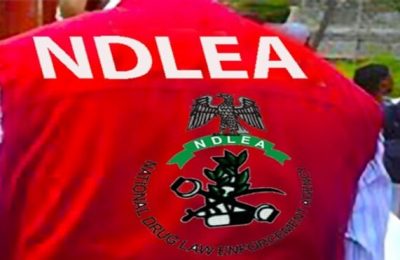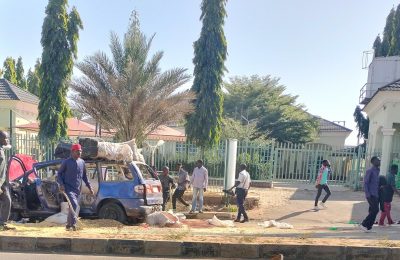
I remember the first time I needed to buy new tyres for my car in the UK. One of the tyres had gone flat, and it soon became clear that it was not something that could be solved merely by adjusting the tyre pressure. It had to be changed, and on I went to the tyre dealer. I provided details about the car and the specifications of the tyre. I then asked for the price, ready to get the tyre and go. The guy looked at me with a chuckle, incredulous. We can’t sell the tyre to you like that, he said, still trying to contain his bewilderment: “You have to bring the car, and we will check and fit the tyre for you.” This also reminds me of the first time I bought a TV set here. It was at an ASDA Superstore, and I was bemused when the salesperson insisted I must provide my home address, and evidence of same, before they can allow me to pay for the TV. I understood later that the home address demand was for the purpose of TV license and the fee that must be paid by all households owning television. It was a criminal offense to default, and you could be jailed for it. The corollary of this, of course, is that the government effectively knows how many households have TV in their home. Ordinary TV.
Now why am I sharing these? On Tuesday 16th January, Ibadan, one of Africa’s largest cities was rocked by a major explosion that flattened many buildings, and, with the last count, left three persons dead and 77 others injured in its wake. The governor of Oyo State, for which Ibadan is the capital city, later held a press briefing where he noted that the explosion was caused by dynamites held in private apartment by some “foreign” miners. Speculations are rife about who this “foreigners” are, and it is a pertinent question to which I will return in a moment. The first, and arguably most important, question in my view is: where did they get these “dynamites” from? Are dynamites stuffs you can just go to the market and buy, without any records or traces? What are the legal requirements and regulatory frameworks guiding supply, storage and use of dynamite? You now see why I began with the story of the car tyre. Ordinary car tyre! The dealers are under legal obligations and regulatory guidelines about the conditions under which they can sell tyres. It is the same with the TV sellers, because they are liable under the law. The idea underpinning this is not genius. It is quite simple, in fact.

Where are the Wolewoles?
As we mourn the dead and contemplate the loss of property running into billions of naira, it is important to draw the right lessons and take action. Of course, heads must also roll, but we must all now, as a society, be exercised by the question of “what happens next”? I am not one for impertinent nostalgia, but we need not look to the West for examples of systems and processes that work, even if they are imperfect. I remember growing up as a child, the fear of “Wolewole” (health and safety inspectors) was the beginning of wisdom. Wolewole was the appellation coined by locals and it literally means “going from house to house”. These health and safety officers go from house to house and are not shy about wielding the big stick when it comes to households with unhygienic surroundings and habits. I have not heard much of them in the past few decades.
Well, I understand that the Wolewoles still exist, on paper that is. The only difference is that they are no longer interested in the business of inspecting houses for hygiene, but are now engaged full time with the more “pressing” matter of inspection the sizes of their salaries, whilst ensconced in their offices across the region. This piece is however not just about the Wolewoles, whose disappearance from public life is only symptomatic of a society grappling with atrophy- a state of affairs characterised by the gradual decline or degeneration in the structures, functions, and vitality of a society. This phenomenon can manifest in various forms, such as diminishing civic engagement, erosion of social norms, weakening of institutions, and a decline in cultural and intellectual pursuits. And it often occurs when a society becomes complacent, loses its adaptability, or fails to address critical issues effectively.
It is right to point fingers at the government who, in the end, have the mandate and the resources vested on them by citizens to maintain order and provide security of lives and property under their jurisdiction. There is no running away from that sacred responsibility of the government to the government. The government of Oyo State must provide answers and proffer lasting solution to the hyraheaded problem brought to light by Tuesday’s tragic incident. While we press the government for concerted action, it often too easy to ignore the equally important fact of collective responsibility and civic engagement. The social contract is a two-sided affair, held together by the combined force of government responsibility and civic engagement. It cannot work any other way. As someone has eloquently pointed out, the most important office in a liberal democracy is, in fact, the office of the citizen. We cannot all simply go to sleep and leave the government to it.
I refuse to believe that there is not a single resident of Deji Oyelese Street, Adeyi Avenue in the Bodija area of Ibadan that saw anything suspicious in that neighbourhood and around the home where the dynamites were stored. If, as I must now assume, at least one person saw something suspicious, what did they do about it? Did they alert others in the neighbourhood? If so, what steps did the community take to alert the public authorities and press for action? Let me hazard a guess or two: in all likelihood, someone saw something suspicious but they did not think it was worth the point of “making a fuss” because they resigned to the notion that nothing will come off their intervention. That could be because they believe the individual in question is well known in government circles, or influential in the community, and is therefore above the law. Or it could be that they did in fact alert the community but nothing was done in the end because the community couldn’t put their act together. This is an example of the process through which societal atrophy unfolds, beginning from the level of individual citizen denying their capability and reneging on their responsibility for action. This then feeds into the collective resignation at the communal level, where everyone submits to the self-indulgent fate that there is nothing they can collectively do to make a difference and make things better.
That is, until disaster strikes like it did on Tuesday. Then it suddenly dawns on us there are consequences for collective apathy and governance failures, and we are all in the soup, after all. Then we realized, with hindsight, that we should have been more careful, more engaged, better organised and more insistent on our demand for change and improvement in our governance and security systems. The price of liberty is eternal vigilance. The vigilance must run through our neighbourhood where we make conscious efforts to know who is who and what they do. It must also be enacted through our interactions with public authorities, whom we must support as due, but to whom we must also make continual demand for better. Nigeria citizens, in their role as conscious stakeholders, must jettison the beggarly spirit that induce entitlement mentality on the part of elected officials. And it is not only elected government officials but also civil servants, that must be held to account and pressed to perform their duties as due. Finally, citizens must also make demand of ourselves as law-abiding citizens as we make demands of those who, on our behalf, make, execute and enforce those laws.
Time to wake up!
Here is the fact, once again: The tragic case of the dynamite explosion is focusing minds about the state of affairs across our cities and towns in Southwest Nigeria and beyond. And this is arguably just a tip of the iceberg. If a “foreigner” can keep dynamites at home, in a high-end residential area of a major Nigerian city, just imagine what else can be kept in homes in the hinterland and across our smaller towns and villages. The impact of the exploding dynamites was felt far away from the epicentre, with reports of buildings shaking and glasses shattering miles away. We are sitting on the keg of gun powder, and if we fall back to sleep now that the roof is on fire, there should not be a surprise about what comes next.
This brings me to the final point about the “un-named foreigners” that have now been heralded as the villains of the tragic dynamite incident. Our cities and towns are porous and vulnerable man-made disasters like what unfolded on Tuesday, and even worse. And we always knew our villages and forests have become high risk areas. Where then is safe? Or who then is safe? I know that the situation, and the prospect for effective action at the State level, is complicated and compromised by the heavily centralised structure of the Nigerian Republic. But surely there are avenues for effective actions at the state level, including a proper census and mechanisms for tracking economic and industrial activities and actors in the states, and who is supplying what to whom and for what. And is it not high time we brought the Wolewole, with an expanded scope of action beyond inspecting latrines and refuse dumps?
Sadly, all too often, in the immediate aftermath of a disaster, many citizens experience this momentary rousing of consciousness that soon fades away like a flash in the pan. At the moment, while this tragedy is still fresh, there is a lot of outrage and anger. People are still in shock and weeping and gnashing their teeth over the monumental destruction that shook the historic city of Ibadan few days ago. Some will say: give it two weeks, and everyone will soon forget about this and go their merry ways. The illegal, nay criminal, miners will then re-emerge from the shadows, dynamites in tow, to enact the next iteration of destruction. Then we will all be roused back to consciousness, suddenly remembering that this rain has beaten before, leaving considerable carnage in its wake. I really this is not the case on this occasion. I hope the tragedy that befell Ibadan on Tuesday is a pivotal moment where we all decide enough is enough; where we embark on concerted and sustained action until real change happens and we regain our collective vitality in a secure, orderly and prosperous society.
Kolade is a professor of entrepreneurship and digital transformation and head of research (interim) at Sheffield Business School, Sheffield Hallam University, UK.
YOU SHOULD NOT MISS THESE HEADLINES FROM NIGERIAN TRIBUNE
FULL LIST: 45 visa-free countries Nigerian passport can travel in 2024
Nigeria sits behind Ghana, Guinea, Kenya, Lesotho, Morocco, Benin Republic and Namibia which are at…
How my brother and I became professor same day in same varsity —UNILORIN don
Recently, two brothers –Ahmed Oloduowo Ameen and Mubarak Oloduowo Ameen– were promoted to…
‘I expected N2,000 as my share from sale of human head we got at Saki cemetery’
Thirty-two-year-old Alli and Abdullahi, aged 35, who were the two suspects arrested by…
Why Port Harcourt refinery is yet to start production—Soneye, NNPCL Chief Comm Officer
Mr Femi Soneye is the Chief Corporate Communications Officer (CCCO) of the…
Fear women, fair women and Minister Ojo
Betta Edu, Sadiya Umar-Farouq and Halima Shehu are the reigning women in our…
What you should know about players in Nigerian 2024 AFCON team
The Nigerian football team have appeared in the finals of the Africa Cup of Nations on twenty different occasions. Nigeria has…







